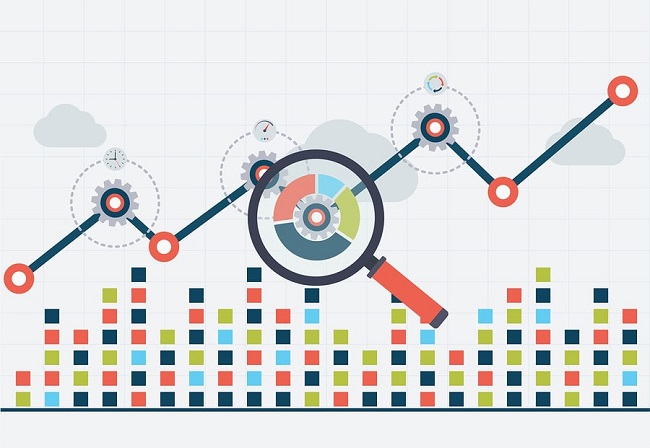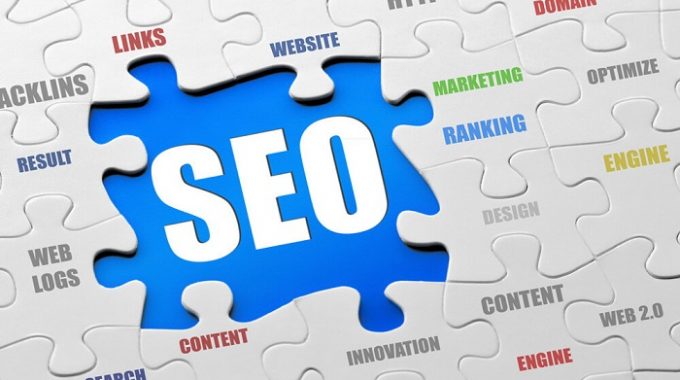Whether it is a blog, or a website or an e-commerce site, everyone wants to stay on the top of the rankings in the search engine result.
Search Engine Optimization or SEO helps in improving the online traffic to these sites by increasing their visibility among the search engine users. There are various SEO metrics by which one can measure the rankings of their content.
To determine how to improve content ranking, it is important to understand the functioning of these metrics. Following are some of the important metrics that provide an insight regarding the rankings of a website.
Organic Traffic

Organic traffic refers to the visitors a website earns owing to their ranking in the Search Engine Results Page' or SERPs and that doesn't include any pay per click or PPC advertisements.
To get a detailed insight into the overall organic traffic, one needs to visit their Google Analytics Account. One can use these insights in two ways to improve their rankings.
Firstly, the traffic as per landing page will help any site owners to understand the ranking of their different pages. Based on this report, they can put efforts to improve the SEO of the pages with poor rankings.
Besides, if one is following different strategies for different pages, this insight will help them understand what strategies are working when they would compare the rankings of multiple pages.
Secondly, using online traffic insight by location is also quite effective in determining how to improve content ranking. It is very important to track the location of the visitors to the website.
This information can be beneficial if the particular website has targeted audience in a specific geographical location or if they are planning to enter a new market.
Based on the location that is the country of origin for most visitors, one can plan their marketing strategy accordingly.
Organic bounce rate
Organic bounce rate shows how many people have left the website after visiting a single page. Since, it doesn't count the time, a person spent on a single page, it doesn't necessarily mean that the particular page failed to provide them the required information.
Again, any landing page with a higher bounce rate might signify that the content of the page doesn't match to the keyword the visitors have searched in the search engine.
Therefore, they can either add relevant links or other contents of interest to ensure that the visitors spend more time on the site by clicking on those links and visiting other pages of the website.
Organic conversion rate
We already discuss about Comprehensive technical SEO checklist for increasing website organic traffic. While organic traffic shows the number of visitors to a website, organic conversion rate helps to understand the number or the percentage of visitors who have converted into a lead.
This is understood when visitors either fill up any form or survey or sign up for a newsletter or similar other. This type of information helps one to understand how much a website is appealing to the visitors.
By measuring the conversion rate in terms of the landing page, they can find out the ways involved in how to improve content ranking of the website.
A comparison between conversion rates of different pages will help them develop a strategy that could improve the conversion rate of pages that are experiencing a poor rate.
Besides, the conversion rate as per location will inform the site owners the location where their message appeals the most. This information is quite helpful in developing a plan to market their products and services in those areas.
Another effective way they can utilize this insight is to check the conversion rate as per devices. For instance, if they find that the conversion rate is higher among desktop users in comparison to a tablet or smartphone users.
they might want to advise their development team to work on improving the users' experience on the latter.
This can further contribute to the increase in organic conversion rate. Additionally, if they find that the users of a specific browser undergo a higher conversion rate, the development team would be required to make the website user-friendly for other browsers as well.
Relevant content

To improve the content ranking of a website, it is important to publish relevant and quality content regularly. Content created for a targeted audience can contribute to higher organic traffic which further will help in increasing the conversion rate.
Many site owners often wonder how to improve content ranking based on the quality or relevance of their content.
In this regard, they might use keyword tracking tools to determine the number of keywords responsible for their ranking on different search engines.
They can also identify particular keywords or keyword phrase for each page. Using both the facts they can develop an SEO strategy to improve their ranking.
Apart from identifying keywords, it is important to find out correct ways to place them within the content.
One might choose to put a keyword phrase or a part of the same in the page URL, or a page title or the headings and sub-headings. Irrespective of the way one chose, placing of keywords should appear natural.
However, while choosing keywords, one should not compromise on the quality of content or SEO, because best website pages are written for the users and not for the search engine.
Metadata

To find out effective ways as to how to improve content ranking, using metadata can offer various benefits. Metadata refers to the information about particular web page content.
Title metadata is the page titles displayed as the headlines in a search engine page results.
This is very important metadata for attracting visitors to a particular website. Description metadata is a textual description that might be used in the page search result.
Generally, the Meta description includes two sentences to describe the contents within the website.
Their main purpose is to interest the search engine users to visit a website. Though the search engine may not always use this description, it is important to provide them the option.
The keyword phrases used in the content can be added to the keyword metadata.
An understanding of all the important metrics and methods discussed in the above section will help one to improve the ranking of their website.





